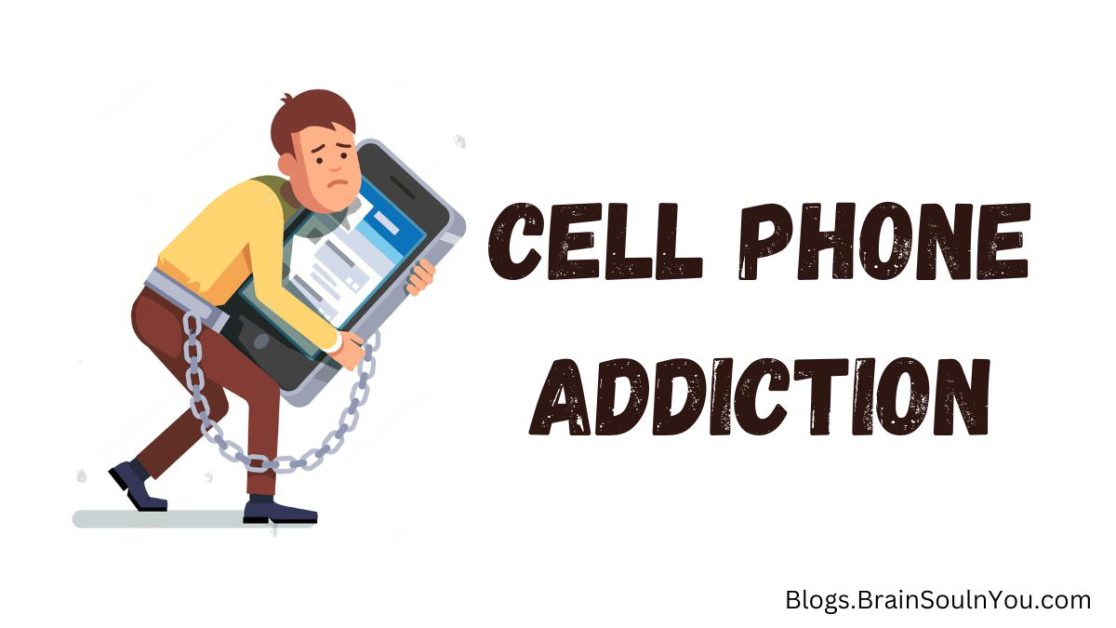Cell phone addiction, also known as smartphone addiction or nomophobia (fear of being without a mobile device), refers to excessive or compulsive use of smartphones that interferes with daily life, relationships, and overall well-being. It can have negative effects on various aspects of life, including mental health, productivity, relationships, and physical well-being.
We made cell phones smart but these smartphones making us fool. By access use of the phone, it becomes a cell phone addiction for people. So getting rid of it is so important. In making everything virtual we are escaping from reality.
Social media is good because it gives you information but it becomes worse when you become addicted to it. To access the use of social media starts giving you negativity and hypnotizing you completely. You stop growing. This article on cell phone addiction will help you to come out of this problem.
Here are some key points about cell phone addiction:
Signs and Symptoms
Cell phone addiction can manifest through various signs and symptoms, including constantly checking the phone, feeling restless or anxious when the phone is not accessible, neglecting responsibilities or relationships due to excessive phone use, and experiencing withdrawal symptoms when unable to use the phone.
Here are some common signs of cell phone addiction:
Excessive Use: Spending a significant amount of time on your cell phone, often more than intended or necessary. Feeling a strong urge or compulsion to use your phone frequently throughout the day.
Difficulty Cutting Back: Trying unsuccessfully to reduce or limit your phone use despite recognizing its negative impact on your life, relationships, or work.
Preoccupation: Constantly thinking about your phone, even when you’re not using it. Feeling anxious or restless when your phone is out of sight or unavailable.
Neglecting Responsibilities: Neglecting or ignoring important responsibilities, such as work, studies, household chores, or social engagements, due to excessive phone use.
Withdrawal Symptoms: Experiencing withdrawal-like symptoms when unable to use your phone, such as irritability, restlessness, anxiety, or even physical discomfort.
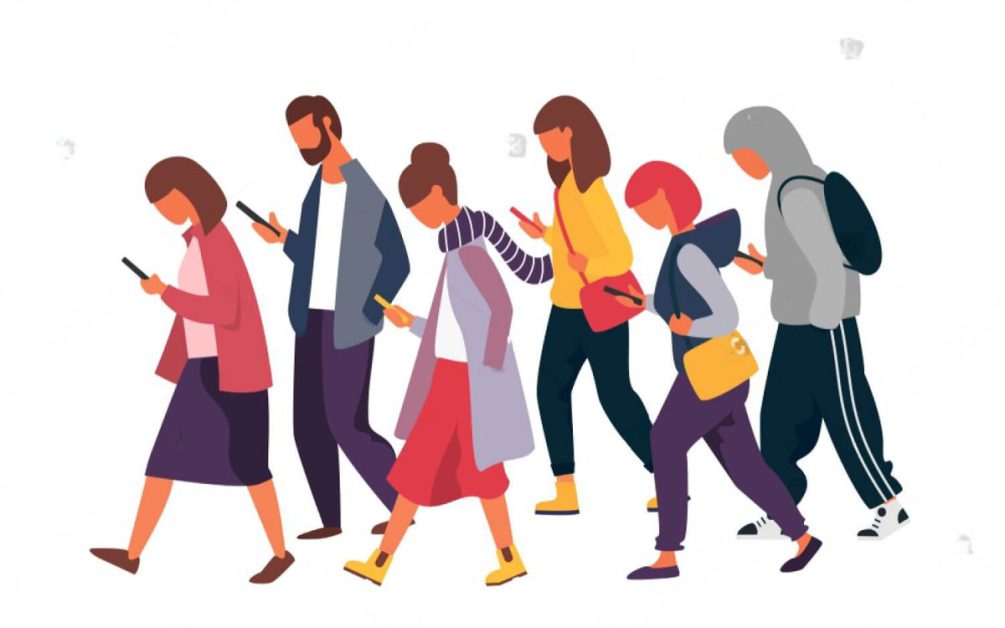
Impaired Relationships: Neglecting face-to-face interactions and relationships in favor of spending time on your phone. Reduced engagement in social activities or experiencing conflicts with loved ones due to excessive phone use.
Escaping Reality: Using your phone as a means to escape or avoid real-life problems, emotions, or boredom. Relying on your phone as a primary source of entertainment or distraction.
Impact on Sleep: Experiencing disrupted sleep patterns due to late-night phone use or keeping your phone nearby, leading to difficulties falling asleep or quality of sleep.
Compromised Productivity: Reduced productivity in various areas of life, such as work, studies, or personal goals, due to excessive time spent on your phone and frequent distractions.
Neglecting Self-Care: Prioritizing phone use over self-care activities like exercise, healthy eating, relaxation, or pursuing hobbies and interests.
Heightened Anxiety or FOMO: Feeling anxious or experiencing the fear of missing out (FOMO) when not constantly connected to your phone or social media, leading to a need to be updated on notifications or online activities.
Causes and Triggers
Cell phone addiction can be influenced by several factors, such as the easy accessibility and convenience of smartphones, the need for social validation and connection through social media, fear of missing out (FOMO), and the addictive nature of certain apps, games, or online content.
Cell phone addiction can be influenced by various causes and triggers. Here are some common factors that contribute to the development of cell phone addiction:
Instant Gratification: Cell phones provide instant access to information, communication, and entertainment. The immediate satisfaction derived from using smartphones can lead to a desire for constant engagement and dependency.
Social Media and Validation: Social media platforms create a sense of social validation and the need to stay connected with others. The desire for likes, comments, and social approval can drive excessive phone use and contribute to addiction.
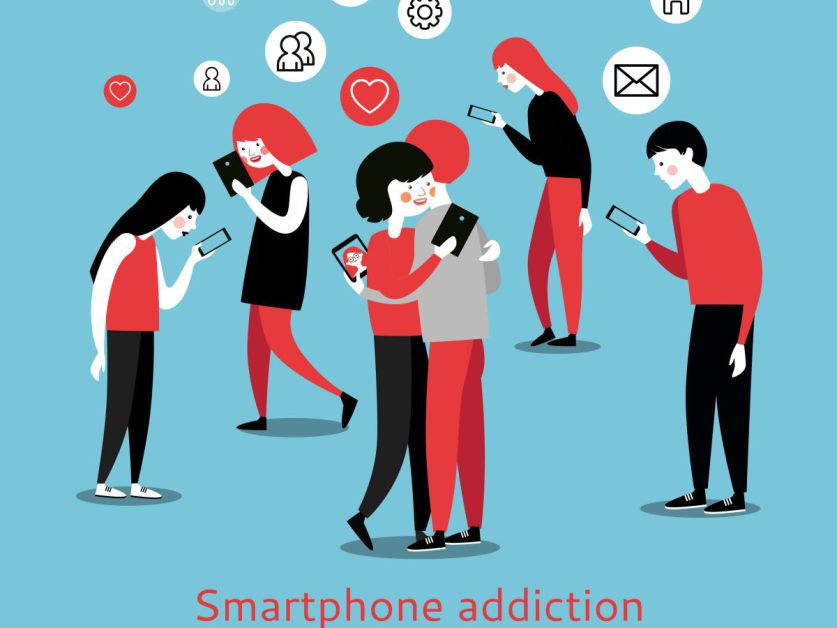
Fear of Missing Out (FOMO): The fear of missing out on important events, updates, or social interactions can lead to compulsive checking of social media feeds and notifications. The need to be constantly connected can fuel phone addiction.
Dopamine Release: The use of smartphones and certain apps triggers the release of dopamine, a neurotransmitter associated with pleasure and reward. The brain begins to associate phone use with pleasurable sensations, leading to a craving for more.
Escapism and Emotional Coping: Cell phones offer an escape from reality, allowing individuals to avoid negative emotions, stress, or boredom. Using phones as a coping mechanism to distract from underlying emotional issues can contribute to addiction.
Lack of Boundaries and Self-Regulation: Insufficient boundaries and self-regulation regarding phone use can make it challenging to control usage patterns. Without clear guidelines, individuals may find themselves continuously reaching for their phones.
Technology Design and Gamification: App and game developers often utilize psychological techniques, such as gamification and notifications, to keep users engaged and coming back for more. These design features can contribute to addictive behaviors.
Underlying Psychological Factors: Cell phone addiction can sometimes be linked to underlying psychological factors, such as loneliness, depression, anxiety, or low self-esteem. Excessive phone use may serve as a means of seeking validation, connection, or distraction from emotional pain.
Accessibility and Convenience: The portability and constant accessibility of smartphones make them easily available for use at any time and in any place. The convenience of having a powerful device in one’s pocket can contribute to overuse and addiction.
Impact of Smartphone Addiction
Smartphone addiction, also known as mobile phone addiction, can have a significant impact on various aspects of life. Here are some common effects of smartphone addiction:
Impact on Mental Health
Excessive smartphone use can contribute to mental health issues such as anxiety, depression, and poor self-esteem. It can also disrupt sleep patterns, leading to sleep disturbances and insomnia. Cell phone addiction can have a significant impact on mental health.
Here are some common ways in which excessive cell phone use can affect mental well-being:
Increased Anxiety and Stress: Excessive cell phone use can contribute to heightened anxiety and stress levels. Constant exposure to notifications, social media pressures, and the fear of missing out (FOMO) can lead to a constant sense of urgency and restlessness.
Depression and Loneliness: Spending excessive time on cell phones can contribute to feelings of loneliness and isolation. Excessive use of social media platforms may lead to social comparison, negative self-perception, and a sense of dissatisfaction with one’s own life.
Sleep Disturbances: The blue light emitted by cell phone screens can disrupt the sleep-wake cycle and negatively impact sleep quality. Engaging with phones before bed or during nighttime can interfere with falling asleep, leading to sleep deprivation and fatigue.
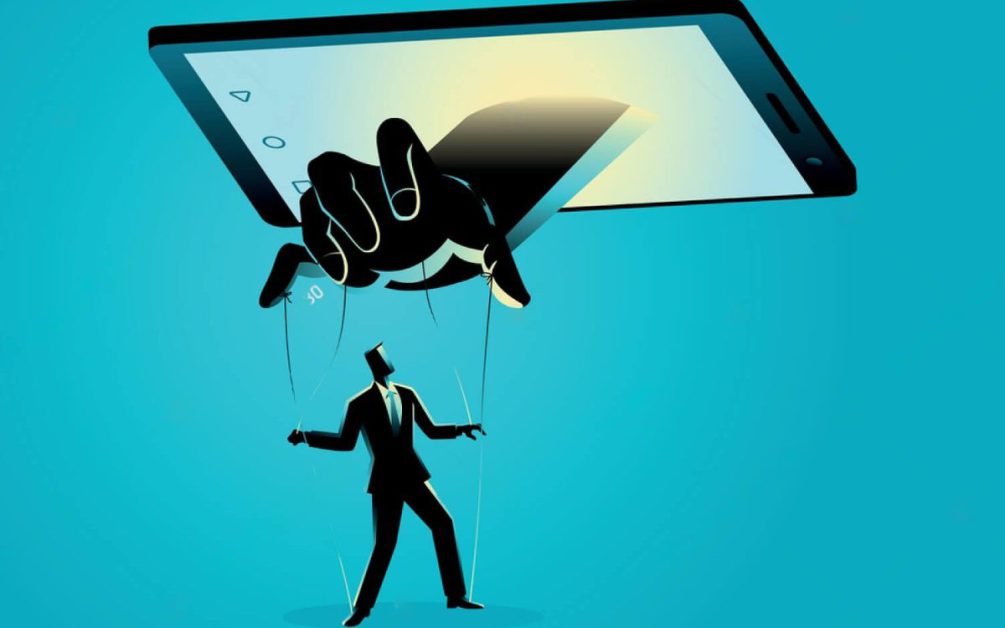
Reduced Concentration and Productivity: Frequent distractions from phone notifications, social media browsing, and excessive screen time can impair concentration and productivity. Difficulty focusing on tasks or completing work can contribute to decreased performance and increased stress levels.
Impaired Social Skills: Over-reliance on cell phones for communication can hinder the development of effective face-to-face social skills. Excessive phone use may lead to reduced opportunities for meaningful interpersonal connections and the development of shallow or superficial relationships.
Decreased Self-Esteem: Constant exposure to carefully curated online content can negatively impact self-esteem. Social media comparisons, cyberbullying, and the pressure to present a perfect image online can contribute to feelings of inadequacy, self-doubt, and lowered self-esteem.
Emotional Dysregulation: Cell phone addiction can disrupt emotional regulation and lead to heightened emotional reactions. Constant exposure to online stimuli and the need for immediate gratification can make individuals more susceptible to mood swings, irritability, and emotional instability.
Neglected Real-Life Experiences: Excessive phone use can lead to a detachment from real-life experiences and the present moment. Individuals may miss out on important events, social interactions, and meaningful connections, leading to a sense of disconnection and dissatisfaction.
Physical Consequences
Long hours spent hunched over screens can lead to poor posture, eyestrain, and physical discomfort. Excessive cell phone use can also contribute to sedentary behavior, reducing physical activity levels and negatively impacting overall health.
Cell phone addiction can have physical consequences due to the excessive and prolonged use of smartphones. Here are some common physical effects:
Eye Strain and Vision Problems: Staring at a phone screen for extended periods can cause eye strain, dryness, and discomfort. This can lead to symptoms like blurry vision, headaches, and difficulty focusing, collectively known as computer vision syndrome. Prolonged exposure to blue light emitted by screens may also disrupt the sleep-wake cycle and affect overall eye health.
Poor Posture and Musculoskeletal Issues: Excessive cell phone use often involves hunching over the phone, leading to poor posture. This can strain the neck, shoulders, and upper back, causing pain, tension, and musculoskeletal problems over time. The repetitive motion of typing or scrolling on a phone may contribute to hand, wrist, and finger discomfort or conditions like carpal tunnel syndrome.
Sleep Disruptions: The use of smartphones before bed or during nighttime can interfere with sleep quality and quantity. The blue light emitted by phone screens suppresses the production of melatonin, a hormone that regulates sleep. This can lead to difficulties falling asleep, disrupted sleep patterns, and decreased overall sleep duration.
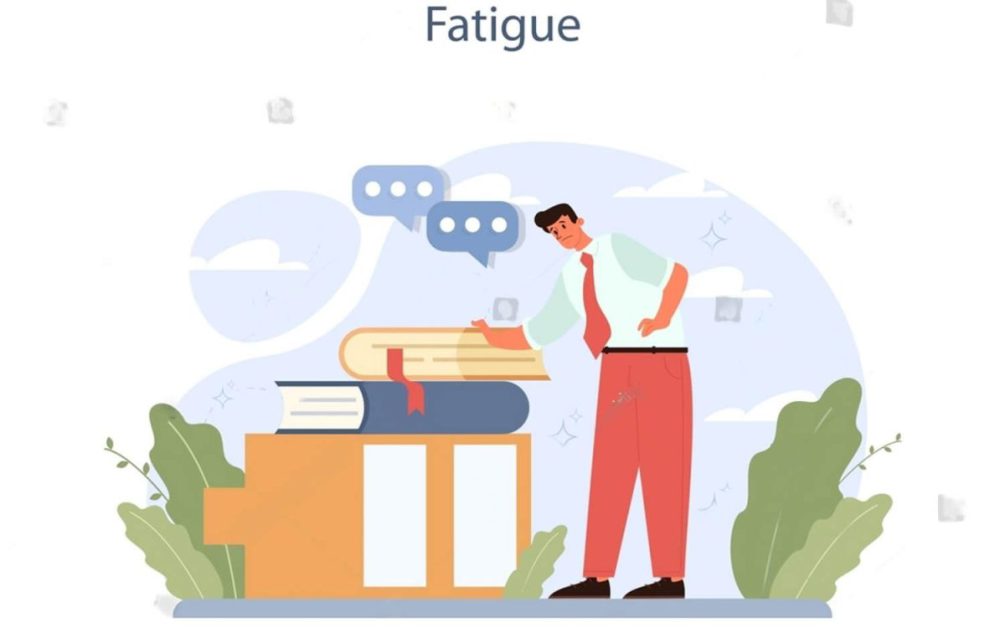
Sedentary Lifestyle: Excessive cell phone use often involves prolonged sitting or lying down in one position, leading to a sedentary lifestyle. Lack of physical activity can contribute to weight gain, cardiovascular health issues, muscle weakness, and decreased overall fitness.
Increased Risk of Accidents: Distracted phone use, such as texting or browsing while walking or driving, can increase the risk of accidents and injuries. Not being fully aware of one’s surroundings can lead to trips, falls, collisions, or even accidents on the road.
Digital Eye Strain: Constant exposure to screens can result in digital eye strain, also known as computer vision syndrome. Symptoms may include dry eyes, eye fatigue, headaches, and blurred vision.
Disrupted Sleep Patterns: The blue light emitted by smartphone screens can suppress the production of melatonin, a hormone that regulates sleep. This can disrupt sleep patterns and make it harder to fall asleep or achieve restful sleep.
Relationship Strain
Cell phone addiction can strain relationships, as excessive phone use may lead to neglecting quality time with loved ones, reduced face-to-face interactions, and feelings of disconnection or detachment.
Yes, cell phone addiction can indeed strain relationships. Excessive cell phone use can lead to a lack of engagement and connection with loved ones, as individuals may prioritize their phones over spending quality time together. Here are some ways in which cell phone addiction can strain relationships:
Lack of Attention and Presence: When someone is addicted to their phone, they may constantly check and use it during shared moments with their partner, family, or friends. This behavior can lead to a lack of attention, reduced conversation, and diminished emotional connection, making the other person feel ignored or unimportant.
Neglected Communication: Excessive phone use can disrupt effective communication between individuals. Constant interruptions from phone notifications or distractions can hinder meaningful conversations, active listening, and the ability to empathize with one another.
Emotional Disconnection: If one person in a relationship is frequently preoccupied with their phone, it can create emotional distance and a sense of disconnection. The lack of emotional presence and engagement can make the other person feel unimportant or undervalued.
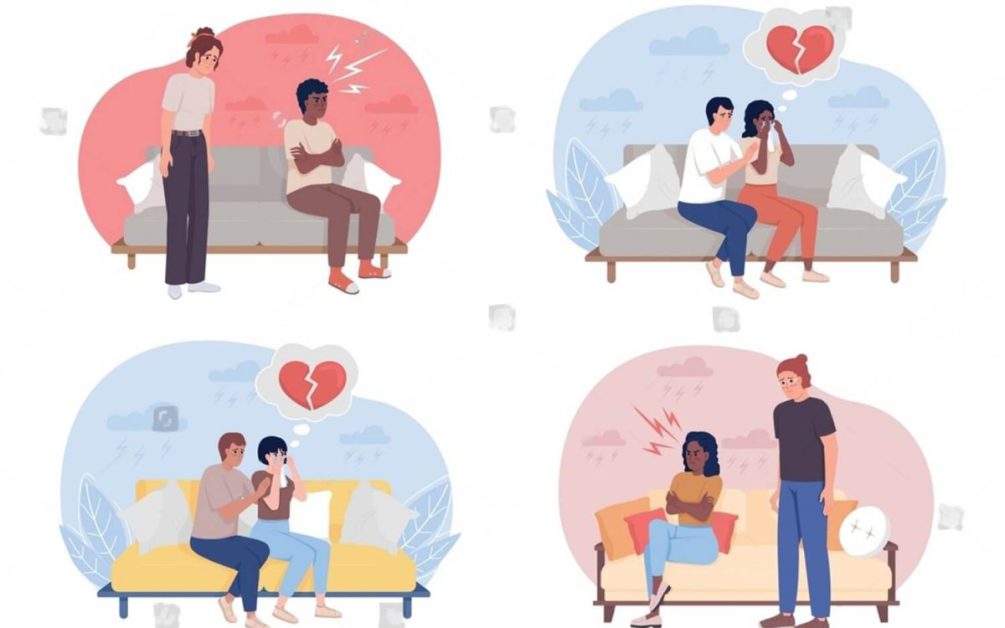
Trust Issues: Excessive cell phone use can erode trust within a relationship. If one partner is secretive about their phone usage, constantly checking messages or social media in private, it can create suspicion or feelings of betrayal, even if there is no actual wrongdoing.
Unrealistic Comparisons: Social media, which is easily accessible on cell phones, often showcases curated and idealized versions of people’s lives. Constant exposure to such content can lead to comparisons, jealousy, and unrealistic expectations within a relationship, putting strain on the connection.
Reduced Intimacy: Excessive phone use can impact physical and emotional intimacy. Constantly being engaged with a phone can disrupt opportunities for bonding, quality time, and physical affection, leading to a decline in intimacy and closeness.
Conflict and Frustration: When one person’s excessive phone use becomes a source of tension, it can lead to frequent conflicts and frustration within the relationship. The neglected time, attention, and emotional connection can create resentment and dissatisfaction.
Impaired Productivity
Spending excessive time on cell phones can reduce productivity and hinder concentration. Constant interruptions from notifications and the lure of social media can prevent individuals from fully engaging in tasks or work.
Strategies for Managing Cell Phone Addiction
Managing cell phone addiction requires conscious effort and the implementation of effective strategies.
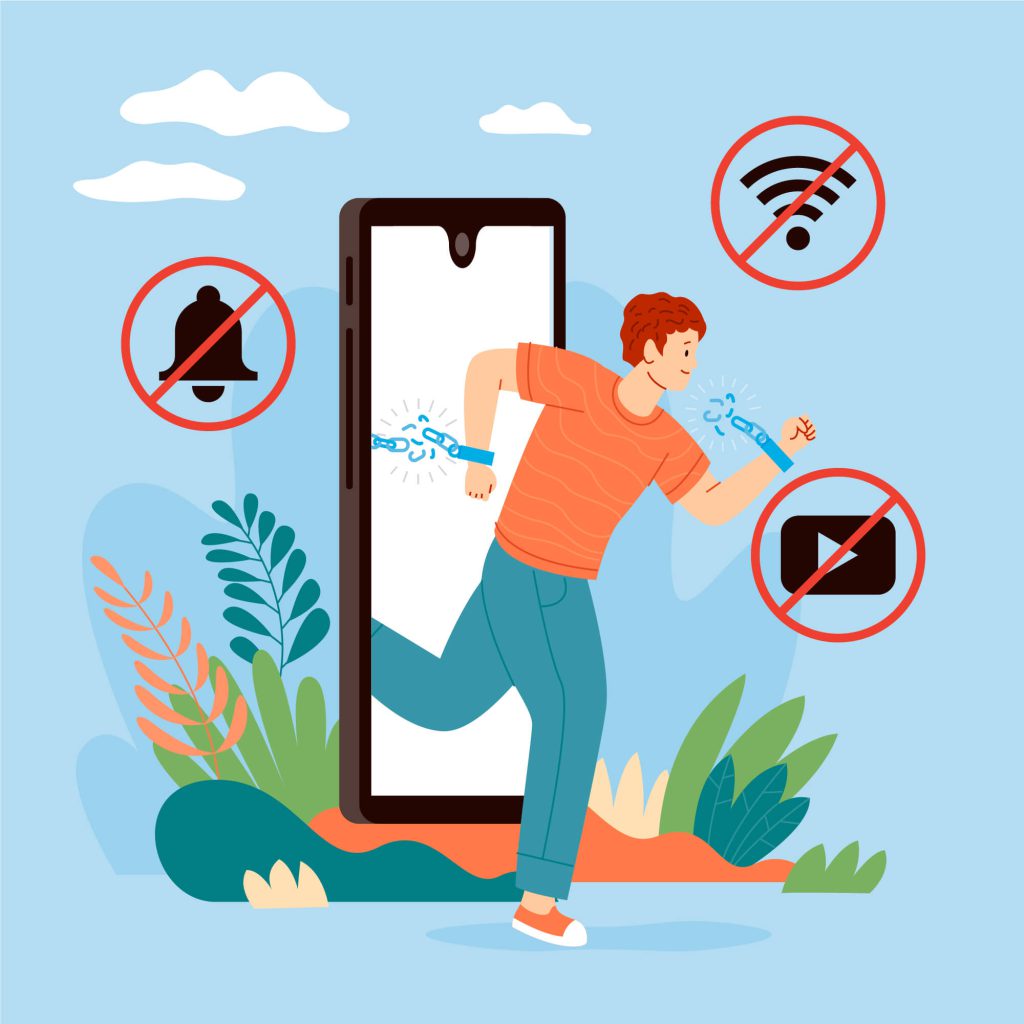
Here are some strategies that can help in Managing Cell Phone Addiction:
1. Set Clear Boundaries
Establish clear boundaries for cell phone use by setting specific times and places where phone usage is restricted or limited. For example, designate certain hours of the day as “phone-free” or create phone-free zones, such as during meals or in the bedroom.
2. Practice Digital Detoxes
Take regular breaks from your phone by scheduling digital detox periods. This could be a few hours each day, a full day each week, or longer periods like a weekend or vacation. Disconnecting from your phone allows you to recharge, focus on other activities, and reduce dependency.
3. Disable Unnecessary Notifications
Limit distractions by turning off non-essential notifications. Determine which notifications are genuinely important and disable those that are not. This helps reduce the constant urge to check your phone for every update.
4. Establish a Phone-Free Bedtime Routine
Create a bedtime routine that involves disconnecting from your phone at least 30 minutes before going to bed. Engage in relaxing activities such as reading a book, practicing mindfulness, or enjoying a calming hobby instead.
5. Practice Mindful Usage
Develop mindfulness around your cell phone use. Before reaching for your phone, pause and ask yourself if it is necessary or if you are using it out of habit or boredom. Be intentional with your usage and try to be fully present in your activities without constant distractions.
6. Find Alternative Activities
Replace excessive phone use with alternative activities that promote well-being and productivity. Engage in hobbies, exercise, spend time with loved ones, or pursue personal interests that don’t involve screens. Find out new ways to enjoy your free time.
7. Utilize Apps for Monitoring and Control
There are apps available that help track and manage screen time. These apps can provide insights into your phone usage habits and set limits on specific apps or overall usage time. They can serve as reminders and support in controlling your phone addiction.
8. Seek Support and Accountability
Share your goal of managing cell phone addiction with friends, family, or a support group. Having someone who can hold you accountable and provide encouragement can make the process easier. Consider joining technology addiction support groups or seeking professional help if needed.
9. Reflect on the Impact
Reflect on the negative effects of excessive phone use on your well-being, relationships, and productivity. Keep a journal or log of your phone usage and note how you feel before, during, and after using your phone excessively. This awareness can motivate change.
To manage cell phone addiction, individuals can implement strategies such as setting limits on phone use, creating phone-free zones or periods, practicing digital detoxes, turning off unnecessary notifications, and seeking support from friends, family, or professionals if needed.
It’s important to remember that moderate and responsible use of smartphones is perfectly normal and beneficial in many ways. However, when cell phone use becomes excessive and interferes with daily life, it is essential to recognize the signs and take steps to regain control and establish a healthier balance between technology and other aspects of life.
No idea, no advice, no suggestion works unless you will do the work!
To get rid of cell phone addiction take counseling sessions. Contact Brain Soul & You
Read more blogs related to Self Improvements: 5 Most Common Mental Disorder, 21 Mind Traps, Miracle Morning Routine, 10 Rituals for a radiant life, Six Keys for Amazing Health, and Subconscious Mind.
Love,
Saurabh Goel
Saurabh Goel
He is the Founder and CEO of the Training and Counselling Company ‘Brain Soul & You’. He is an NLP Wellness Coach, Life Coach, Brain analyst, and Trainer for Education, Corporate, and Entrepreneurship. For more than 7 years, he delivered presentations on entrepreneurship, mind programming, and motivation. He did his B.tech in IT and later choose to be a successful psychologist. He is helping people in various ways through his counseling and training sessions.

